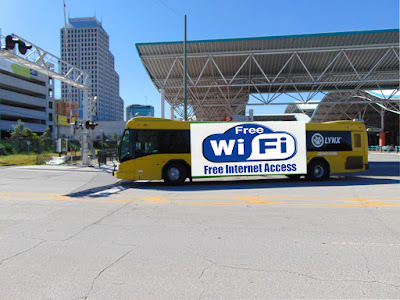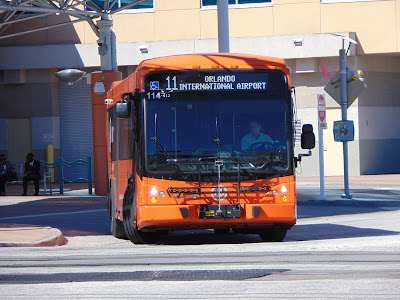Civil rights icon Rosa Parks fought for public transit
Many people think of Rosa Parks as a hero of the civil rights battle for defying racist Alabama segregation laws in 1955 by getting arrested for refusing to give up her seat to a white man and igniting the Montgomery Bus Boycott.
 |
| Rosa Parks |
Mrs. Parks, who was born more than 100 years ago on Feb. 4, 1913, was also an early advocate for public transportation, which is why thousands of people around the nation will observe Transit Equity Day on Monday, Feb. 5, 2018.
Leaders of the Transit Equity Day initiative wrote the following:
One of the organizers of the Montgomery bus boycott, Rev. Martin Luther King, Jr., became America’s best-known spokesperson for civil rights. He helped Americans to understand that civil rights included not only the right to vote and to ride in any seat on a bus, but the right to a decent home, the right to a good job, the right to join a union, and other rights necessary for equal access to a good life.
King recognized that equal access to transportation was one of those essential rights. Fifteen years after the integration of Montgomery’s buses, he pointed out in A Testament of Hope that many Americans faced discrimination not because they couldn’t sit on any seat on a bus, but because they couldn’t get access to public transportation that would take them where they needed to go at an affordable cost. “The layout of rapid-transit systems,” he pointed out, “determines the accessibility of jobs.” If the transportation systems in American cities were laid out so as to provide “an opportunity for poor people to get meaningful employment,” then those people could begin to “move into the mainstream of American life.” Unfortunately, transit systems did not provide that accessibility. So, King concluded, “urban transit systems” have become “a genuine civil rights issue.”
Since then our urban transit systems have grown far worse. Privatization has led to running companies not for public service but for corporate profit. If companies can’t make a profit running buses for less affluent workers and neighborhoods, they often fail to buy new buses, let their equipment run down, make schedules that are impossible for drivers to meet – and then shut down the lines on the grounds that they don’t pay for themselves! Our cities are full of transit deserts where residents and workers have to spend hours walking and taking circuitous routes simply to get to their jobs, see their families, buy groceries, or get to a medical appointment. According to U.S. Census data, nearly half of American households do not have access to any public transportation.
In honor of Rosa Parks Day, a group of organizations including the Amalgamated Transit Union, the Labor Network for Sustainability, Jobs with Justice, and the Institute for Policy Studies are declaring a Transit Equity Day on February 5, 2018, to take action for civil rights and a climate-safe future.
Dr. King expanded the focus of transit rights from the right to ride anywhere on a bus to the right to ride to anywhere you need to go on a bus. We are similarly expanding what is included in transit justice:
· Transportation justice: Every person in every neighborhood regardless of age, race, class, gender, or disability should have the right to safe, convenient transportation at an affordable cost.
· Workers justice: The workers who build public transit infrastructure, who operate and maintain the systems, and who get us where we need to go have the right to safe, decent working conditions, family-supporting incomes, and the right to choose to be represented by a union.
· Community justice: Pollution from cars, trucks, and other transportation emit a large proportion of our dangerous pollution, causing asthma and many other life-threatening conditions. Replacing cars and trucks with public transit is far healthier for individuals and communities. A just transit system will provide all communities fair access to the jobs and amenities of metropolitan areas.
· Climate justice: The lives and futures of Americans and all people are threatened by devastating climate change. As a U.S. federal court recently declared, all people have a right to a stable climate. That will require a rapid cut in the burning of the fossil fuels that emit the greenhouse gases (GHGs) that cause climate change. And one of the easiest, fastest, and cheapest ways to do that is public transit run on clean, renewable energy.
· Transit justice, in short, is essential for building a just and climate-safe future.



Comments
Post a Comment